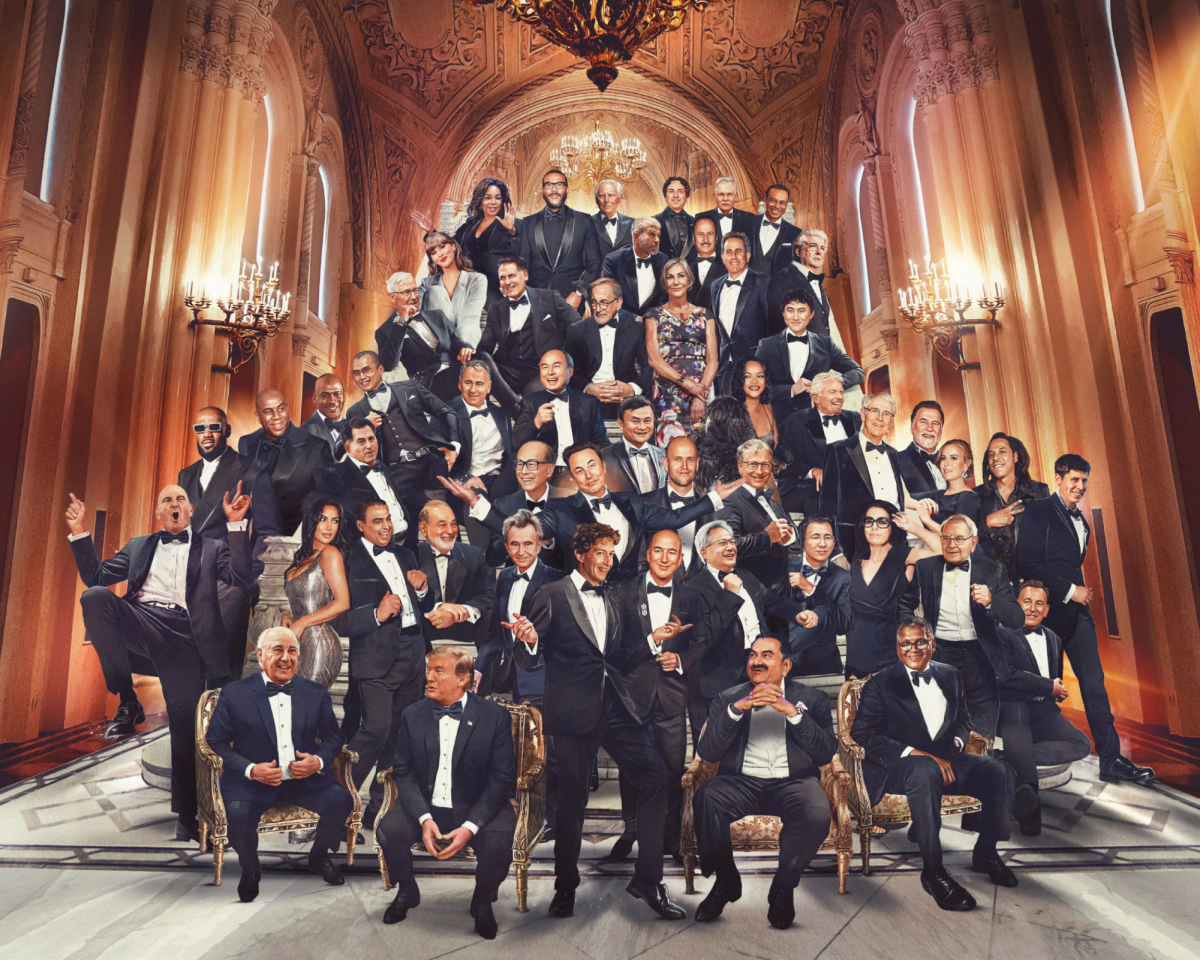Taylor Swift’s “The Life of a Showgirl” album has sparked controversy about her status among the top 1% of America. With over 100 million monthly listeners on Spotify and 10 million attendees of the Eras Tour in 2024, Swift has made herself the biggest pop star in the world. She is also the second-wealthiest musician in the world, with her net worth estimated at $1.6 billion. Most of her money is generated from music streaming, concert ticket sales (which were around $2 billion in 2024 alone), and merchandise.
I’ve enjoyed Taylor Swift’s music, and I’m not one to dunk on a successful woman. I don’t doubt that she deserves her fame, but that “b” in “billion” is a red flag to me, as well as her less-than-ethical private jet use.
Swift is not the only celebrity with this high net worth; Jay-Z, Rihanna, Selena Gomez, multiple Kardashians, Kanye West, Oprah Winfrey, LeBron James, Michael Jordan, Jerry Seinfeld, and many more have over a billion dollars to their names. According to Forbes, the top 15 richest Americans have net worths of at least $100 billion, including Elon Musk, Jeff Bezos, Mark Zuckerberg, and Bill Gates.
A person who has earned their money has the right to keep and spend it how they like. But can anyone really “earn” a billion dollars?
To try to put a billion dollars into perspective, if someone makes $10,000 an hour, working 40 hours a week, 52 weeks a year, they will earn a billion dollars in fifty years. Or, if someone makes $1 billion a year, they would be earning $480,769 per hour, or approximately $4 million a day. If the average American worked full-time for around $60,000 a year (without spending any money), it would take over 200 lifetimes to make a billion dollars, or over 16,000 years.
It is difficult to put a billion of anything into perspective because it is such an unfathomable number. It’s like counting every star in the night sky, grains of sand on a beach, or raindrops that fall during a storm.
Additionally, the money billionaires make is not their own effort, but ours, our labor and our exploitation. Many celebrity billionaires have large brands, such as Skims by Kim Kardashian and Fenty Beauty by Rihanna. According to Good On You, which ranks brands on their working conditions and environmental impact, these brands rank very low on their list (on par with brands like SHEIN and Fashion Nova, which are infamous for their problematic standards). And don’t get me started on Amazon.
If dozens of small fashion and skincare brands are at the top of Good On You’s list, then why can’t billionaire business owners improve the quality of their brands and the labor standards of their workers?
The wage gap between the working class and the top 1% has also surged in the last few years. According to the Forbes 400 List, “The 400 richest people in the U.S. are worth a record $6.6 trillion after getting $1.2 trillion richer over the past year amid surging stock markets and AI mania. A decade ago, when it took $1.7 billion to make The Forbes 400, a net worth of $3.8 billion was comfortably within the top half of the ranking”, all while minimum wage has barely increased and there are millions of people around the world struggling to pay for necessities.
Now, say a billionaire was feeling generous. What kind of changes could they make in our world with their money? Maybe you’ve seen Swift’s $100,000 donation for medical bills for a child with cancer or $5 million to a hurricane relief organization. In no way am I denouncing her for her philanthropic efforts but consider that $5 million is 0.5% of her net worth. 0.5% is equivalent to the average person donating $200 to charity. The numbers you read in headlines may sound large, and they are, but in context, they’re basically pennies for a billionaire.
The average billionaire could pay for every American to eat for a day with less than half of their net worth. Even better, the U.N. World Food Programme estimates that ending world hunger would cost $40 billion per year until 2030, which equates to only half of Elon Musk’s worth. The net worth of the top 4 richest Americans individually could cover the $220 billion of medical debt in America. School loan debt in the US is $1.8 trillion, which is a third of the total net worth of the 400 richest Americans.
My point is that a few hundred billionaires could make life so much better for the rest of the world, and yet they don’t. As long as people are needlessly starving, it will never be enough. I believe it is the responsibility of the more fortunate to help the needy, but there is a whole class of people who would rather hoard their wealth, watching the interest of their investments alone accrue more than 99% of what the world makes in their lives.
There is no such thing as an ethical billionaire. If you have the resources and commitment, consider what our dollars as consumers can do. Buy from small businesses, find new artists or celebrities to engage with, and determine what behaviors you choose to support.
Starbucks and McDonald’s boycotts amid Israel-Palestine protests are proof that our actions can impact corporations at a global scale. Our voices have value.
Tax the rich, feed the hungry, and house the homeless.


